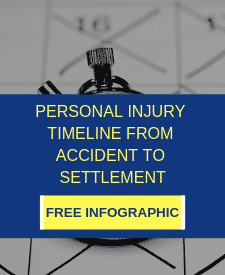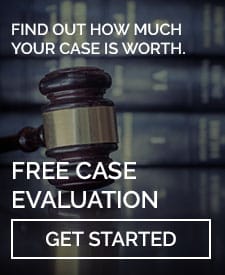If you have been involved in an accident or incident – whether a car crash, a workplace mishap, food poisoning, or a medical mistake – you know that physical injury is often not the only pain with which you are struggling. You may feel depressed, anxious, and/or be suffering from symptoms of post-traumatic stress disorder. The impact on your mental and emotional well-being can be equally, if not more, damaging. If so, the big question is: can you file an emotional distress lawsuit?
Emotional Distress Lawsuits in Florida
First, let’s discuss what a negligent infliction of emotional distress claim, or NEID claim, is. A NEID claim comes about when the actions of a defendant are so careless or negligent that he/she must compensate the plaintiff for emotional or mental injury.
Here’s a real case example: a woman was checking into a hotel. The parking lot was full, so the security guard told her to park across the street. She asked if it was safe; he said yes. She then asked if he would escort her. He refused. The woman made her way to the parking lot alone and was held up at gunpoint. The assailant stole her car and left. She sued the hotel owners for emotional distress. The security guard’s actions were considered careless and her claim was successful.
Now, this brings up an important aspect of any negligent infliction of emotional distress claim in the state of Florida: the impact rule.
In Florida, for an emotional distress claim to be successful, you must be “physically impacted.” If you were never “harmed” or “touched” physically, your case will be disregarded in most instances. In the example we mentioned above, the woman was able to receive compensation for emotional distress because the court deemed that she was “touched” or impacted by the tip of the gun.
In another case, a man was tested for HIV and informed that he was positive. For over a year and a half, he believed he had the virus. When he was tested again, the result was negative. He never had HIV. The man sued the doctor who had erroneously diagnosed him for emotional distress. His suit was unsuccessful because he had never been “touched.” The doctor did not inflict physical pain or injury.
The thinking behind the impact rule is that physical impact can be measured. It’s relatively objective: you can document a broken bone or a traumatic brain injury, for example. Emotional distress is not measurable; it is more subjective. Therefore, you cannot put a dollar amount on emotional or mental suffering.
The impact rule does help reduce false claims, but it can also leave people struggling with severe emotional distress without many options. There are a few exceptions to the impact rule, however. These include:
- Wrongful birth
- Negligent stillbirth
- Defamation, invasion of privacy, and other “intentional torts”
- Breach of confidentiality by psychotherapist
- Consumption of contaminated foods or beverages
- Sharing of HIV test results by entities
Zone of Danger and Third-Party Witnesses
You may also be successful if you were within the “zone of danger” and suffered a physical injury as a result. For example, you are walking across the street on a crosswalk and a distracted or intoxicated driver nearly hits you. This stress is so great that you suffer a heart attack. The driver’s actions caused physical symptoms of psychological trauma, and you may be able to collect damages with a NEID claim.
In some cases, you may be able to file a NEID claim if you witness a loved one suffering physical impact. Say that your child is struck by a drunk driver. You see this, pass out, and hit your head. But again, there is a physical component. Without this – even if it is minor – your emotional distress claim will most likely be disregarded.
The impact rule is complex; if you are unsure whether you have a sufficient cause for an emotional distress lawsuit, contact the team at the LaBovick Law Group. With decades of experience in all aspects of personal injury law, we can help you navigate this challenging terrain, determine if you meet the impact rule or its exceptions, and if so, develop a compelling case to ensure you receive the compensation you are owed.
Emotional distress can be as or more difficult to deal with in the aftermath of an accident or injury. We are here to fight for your rights as personal injury attorneys in South Florida.




